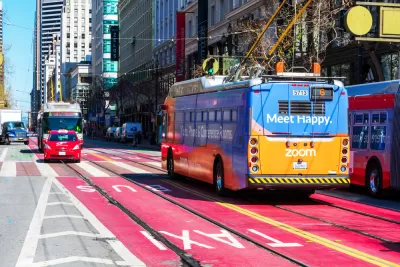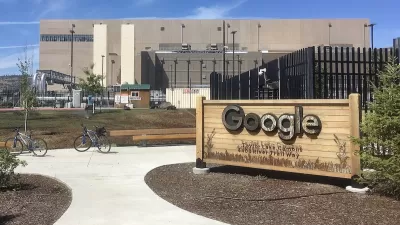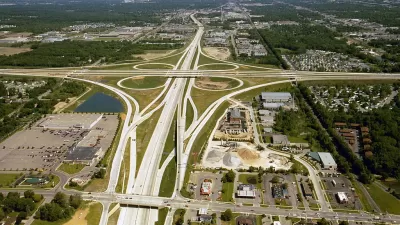A report from the Sabin Center provides a legal framework for municipal-level action on climate change policy.

The Sabin Center for Climate Change Law's Amy E. Turner and Michael Burger provide a legal framework for cities wanting to take action on climate change goals in their local jurisdictions. The document "is meant to highlight potential issues and offer a range of paths forward that cities may consider in pursuing their municipal carbon reduction goals."
Outlining the four sectors that contribute to greenhouse gas emissions––buildings, transportation, energy, and waste––the report explores carbon reduction policies that can be implemented at the municipal level and "cross-cutting legal frameworks that inform many areas of city climate policy, as well as legal concepts that influence how equity may be incorporated into those policy domains."
Potential decarbonization tools in the four sectors include:
- Buildings: building energy benchmarking, energy efficiency retrofits, changes in local building codes, restriction on energy sources.
- Transportation: land use and zoning reform, support of alternative transportation modes, congestion pricing, and investment in electric vehicle infrastructure.
- Energy: investment in renewable energy programs at the household level and the utility scale.
- Waste: recycling and organic waste collection programs, waste management requirements for new buildings, plastic bans, and regulation of waste companies.
The report also includes a chapter on equity, citing the impacts of climate change on BIPOC and low-income communities and the interwoven nature of decarbonization, housing, and jobs policies. While the authors note that all cities have different legal constraints, the framework can serve as an informational tool to guide city leaders towards the most effective decarbonization policies.
FULL STORY: Cities Climate Law: A Legal Framework for Local Action in the U.S.

Alabama: Trump Terminates Settlements for Black Communities Harmed By Raw Sewage
Trump deemed the landmark civil rights agreement “illegal DEI and environmental justice policy.”

Study: Maui’s Plan to Convert Vacation Rentals to Long-Term Housing Could Cause Nearly $1 Billion Economic Loss
The plan would reduce visitor accommodation by 25% resulting in 1,900 jobs lost.

Why Should We Subsidize Public Transportation?
Many public transit agencies face financial stress due to rising costs, declining fare revenue, and declining subsidies. Transit advocates must provide a strong business case for increasing public transit funding.

Paris Bike Boom Leads to Steep Drop in Air Pollution
The French city’s air quality has improved dramatically in the past 20 years, coinciding with a growth in cycling.

Why Housing Costs More to Build in California Than in Texas
Hard costs like labor and materials combined with ‘soft’ costs such as permitting make building in the San Francisco Bay Area almost three times as costly as in Texas cities.

San Diego County Sees a Rise in Urban Coyotes
San Diego County experiences a rise in urban coyotes, as sightings become prevalent throughout its urban neighbourhoods and surrounding areas.
Urban Design for Planners 1: Software Tools
This six-course series explores essential urban design concepts using open source software and equips planners with the tools they need to participate fully in the urban design process.
Planning for Universal Design
Learn the tools for implementing Universal Design in planning regulations.
Smith Gee Studio
Alamo Area Metropolitan Planning Organization
City of Santa Clarita
Institute for Housing and Urban Development Studies (IHS)
City of Grandview
Harvard GSD Executive Education
Toledo-Lucas County Plan Commissions
Salt Lake City
NYU Wagner Graduate School of Public Service





























